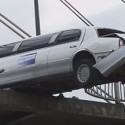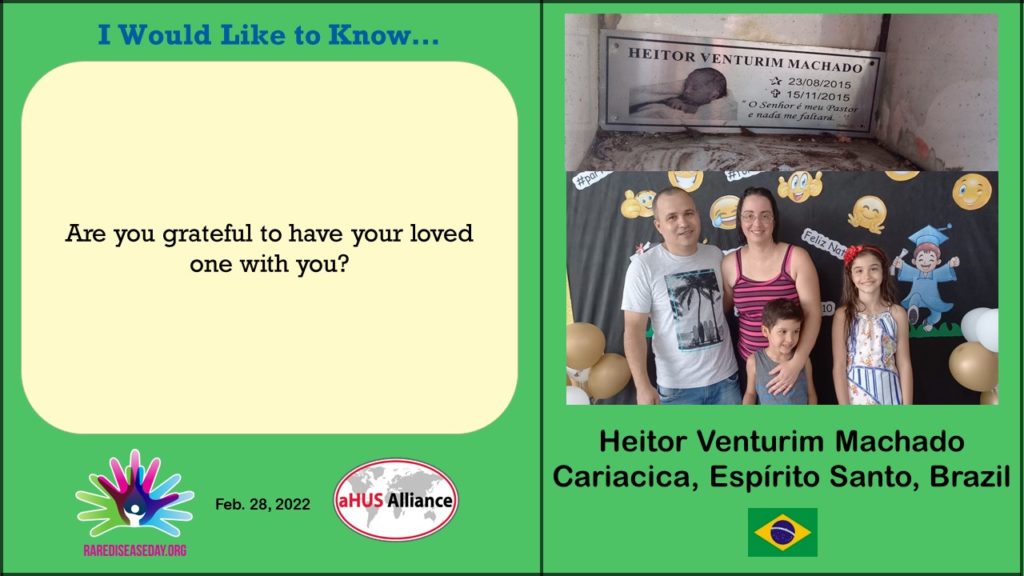The RDD2022 Video question by Heitor may be one which is not specific to aHUS, . It raises issues, which are common to all affected by life threatening diseases, no less when the aHUS ”car crash“ happens in a family.


When aHUS happens to family members , whether a parent or a child, there is a realisation that something seriously wrong is happening. Something not really understandable , something which is even a challenge to the medics themselves, something that may not be survived. A realisation felt by each patient and their family. What was to follow was not their expectation.
Around 4000 people throughout the world will experience that feeling each year.
The chances are that a lot will not survive due to lack of access to the medical care needed to treat aHUS. But many do survive these days. Just a decade ago some of them would not have. Or would have faced a lifetime on dialysis. Many aHUS patients and families have faced coping with that.
It is thanks to the efforts in research and development of care, the setting up of business structures to deliver care and acquiring knowledge about aHUS care over many years by thousands of people, that those ”loved ones” are still around today.. Something families are grateful for.
Survival is the start of what is to follow. Recovery is next . Whilst that may be a natural process for the patient, for the family it becomes a process of providing social support. Doing things which they would not have to do, simple day to day things such as driving patients to hospital, or extraordinary things like helping set up dialysis machines and being alert to help the patient if something goes wrong when they are attached; to fetch and carry for the duration of that treatment session. Foregoing other personal activities to spend their time with the recovering patient. Maybe giving up work to do so.
Also family members are frequently donors of kidneys to aHUS patients in their families who are in need a transplant
The social support from their ”loved ones” is as important as the clinical care on the road to recovery and is something for all to be thankful for, Heitor.

